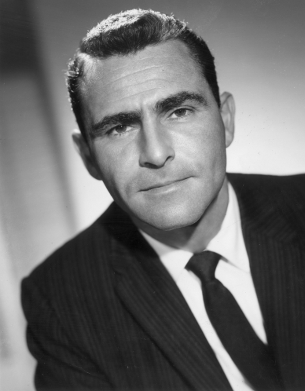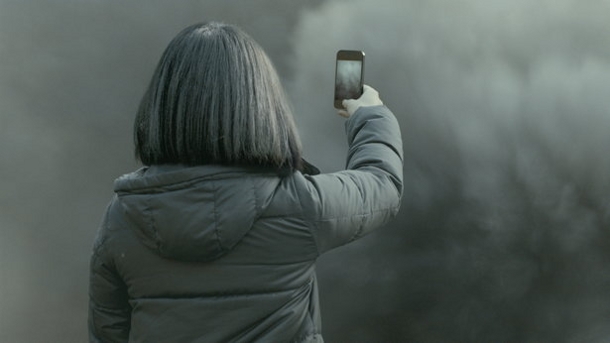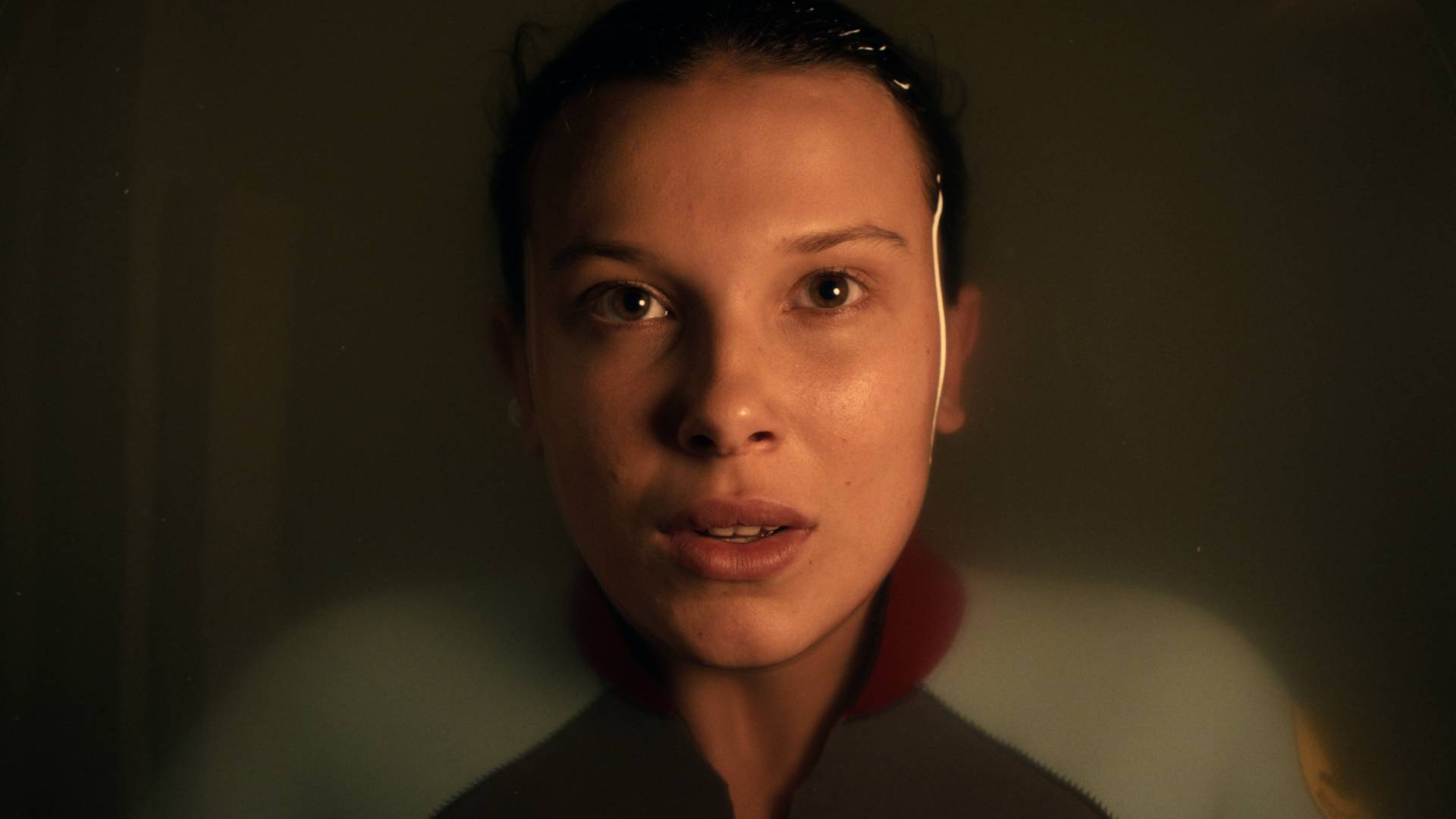Charlie Brooker Talks The Twilight Zone And Technology
We talk to the creator/writer of Black Mirror as the show returns for a second series
Black Mirror series 2 : We talk to the creator/writer as the tech-themed anthology show returns.
First of all, just in case you were trapped under a rock when the first run went out and have no idea what Black Mirror is all about, here’s a quick primer.
“They’re all ‘What if?’ stories, basically”, Brooker explains. “I called the second episode of the first series a sarcastic version of the future, and they’re all that, in some respect. They’re inspired by something contemporary, then extrapolate it to a ridiculous degree, but not playing it as comedy. They’re much less a critique of technology than of what you could potentially do with technology, or what technology could potentially do to you if you haven’t really thought through the consequences.”
Brooker admits to being as guilty as the next man when it comes to letting technology take over his life.
“I’m really bad – really, really bad. I’ve started consciously rationing myself. I don’t go on Twitter and things like that if I can help it at the moment, because I felt like I was spending so much of my time staring at screens that I started to just not like it.
“Also, I think there’s something about having a baby [Brooker’s son Covey was born last March]. TVs now are just much bigger than when I was a kid, and I’ve noticed that we’ll be getting him ready for bed or whatever, and if the telly’s on he just turns his head. As soon as he learned to turn his head, he’d turn his head to stare at the screen. And there’s something about the dominance of a screen now in a standard little living room that makes you think, ‘What’s this doing to your brain?’”
Nowadays, increasingly, if people want to keep a toddler busy for ten minutes, they’ll hand them a smartphone to watch a YouTube video or play game.
Weekly digests, tales from the communities you love, and more
“In ye olden days they used to shut up babies by dipping their dummies in brandy”, Brooker notes. “I wonder if it will be seen as the same. There are some people who recommend that you don’t let a kid look at a screen for three years! I mean, that’s obviously impossible now, I would’ve thought, but that’s interesting in itself.
“I was reading a report the other day which was saying that accidents involving kids have skyrocketed - minor accidents involving kids, where their parents basically have been looking at smartphones and what have you while looking after the kids, so they haven’t noticed that the kid puts his fingers in a door and traps them or something. There are quite a few types of accident that had been falling for years that started rising again, and they attribute a lot of that to constant distraction.”

When it comes to anthology shows, the daddy of the genre is The Twilight Zone , a series Brooker is a great admirer of. He attributes its classic status to the ingenuity of creator Rod Serling.
“It didn’t feel bland”, Brooker says. “It was uncompromising in its own vision - for want of a less wanky word. Rod Serling had realised that the only way he was going to get to talk about the issues he wanted to talk about was to wrap them up in metaphor, which is why he started doing The Twilight Zone . At the time, because he was feted as a hard-hitting new TV writer, it was seen as a step down that he was doing this ‘show about flying saucers’, as people were putting it. But what he was doing was actually very clever - he realised that metaphorically he could say things that the corporate sponsors would not allow him to say.
“We don’t have that level of censorship anymore on television, so you can write about racism, or paranoia, or whatever you want straight off the bat. But it feels to me that if you want to address technology a way to do it is extrapolate it from where it is. That was what The Twilight Zone did: it would take things they were concerned about in the present moment and crank them up. It would present these irresistible, ‘What if’ ideas, and then play them out in a way that when it would hit the right height was really chilling. And those episodes are still equally chilling today - if not more so, because you get the added ‘archive assist’, where it becomes slightly creepier just by nature of the fact that it’s 60 years old. They were like good little campfire stories, and TV doesn’t do that very often.”
Click on "Next" to read the rest of our Charlie Brooker interview.

Unlike most anthology shows, Black Mirror doesn’t use a framing device to link the episodes together – such as Rod Serling’s trademark introductions to every instalment of The Twilight Zone . But it was considered.
“We did have that conversation”, Brooker says. “One of the reasons they don’t do anthology shows very much anymore, apart from the fact that it’s a fucking nightmare and they cost a lot of money because you have rethink them every week, is that what channels want is people in extremely large numbers, and one of the recognised ways of doing that is to give people characters that they want to come back to the following week. Obviously with an anthology show you don’t have that, because by it’s very nature it’s a different story each week.
“So, there were discussions. Do we set them all in the same street? Do we have some characters who appear in each episode, a bit Three Colours: Blue/Red/White style? We did think about having a character who introduces them, Tales From the Crypt style, or like Rod Serling or Alfred Hitchcock or Roald Dahl, because most anthology shows did have that - Rod Serling was the unifying character, in a way. But the more we thought about it we thought it was a bit weird. If I was doing it, it would just be downright odd! And then if we invented a character, why are they there? Initially we thought we were going to do eight episodes per season. Then it became apparent that it was easier to do three - we didn’t have the budget and time to do eight, basically. And once it came down to three episodes it felt less necessary to have that.
“What I felt quite strongly was that really, when you think of The Twilight Zone you don’t actually think of Rod Serling. He is one element in it that you might think of. With Tales Of The Unexpected you might think of Roald Dahl, but that’s not the quality you remember about it. You say things, ‘Go a bit Twilight Zone ’ because the show itself became the character you tuned in for each week. Even if you didn’t know what you were going to get, you knew it would have a certain tone, and you knew it would give you a certain frisson – ‘frisson’, what a prick! So the intention was that hopefully it’d become a thing where when people would see some eerie technology story they’d go, ‘Ooh, that’s a bit Black Mirror !’
Black Mirror series two starts airing on Channel Four on Monday 11 February, at 10.00pm.
Ian Berriman twitter.com/ianberriman
Ian Berriman has been working for SFX – the world's leading sci-fi, fantasy and horror magazine – since March 2002. He's also a regular writer for Electronic Sound. Other publications he's contributed to include Total Film, When Saturday Comes, Retro Pop, Horrorville, and What DVD. A life-long Doctor Who fan, he's also a supporter of Hull City, and live-tweets along to BBC Four's Top Of The Pops repeats from his @TOTPFacts account.


